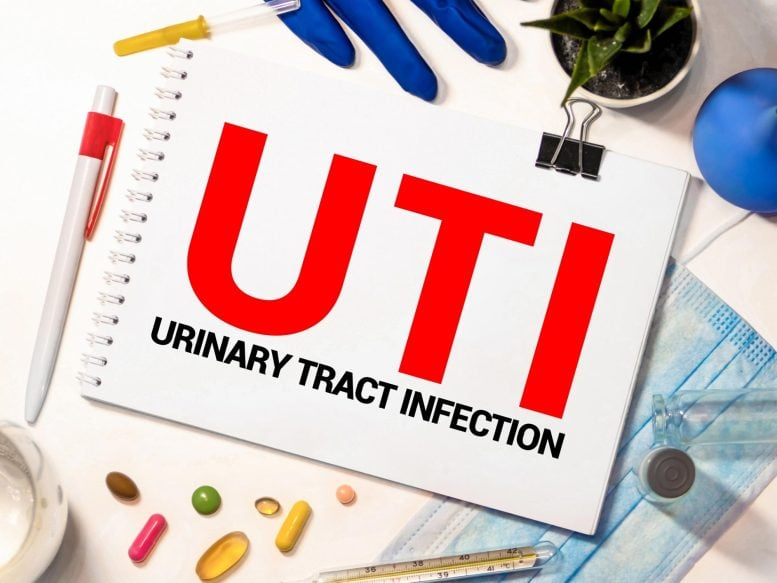The conventional reliance on antibiotics for both treatment and prevention has, however, contributed to growing concerns about antibiotic resistance, prompting a global re-evaluation of management strategies.
At the 25th Annual Congress of the Argentine Society of Infectious Diseases (2025), a research team led by Dr. Sandra Aronson, a distinguished general practitioner, geriatrician, and infectious disease specialist from Hospital J.A. Fernández and Hospital Italiano in Buenos Aires, presented a compelling case for the widespread adoption of non-antibiotic strategies in the initial management of recurrent UTIs. Her insights align with recent international guidelines that advocate for reserving antibiotics as a last resort, emphasising the availability of effective non-antibiotic tools.
The Imperative for Non-Antibiotic Approaches
Dr. Aronson’s team highlighted that while 5% of recurrent UTIs may stem from persistent microorganisms or inappropriate antibiotic use, a significant 95% are reinfections with new bacterial strains. This underscores the need for preventative measures that bolster the body’s natural defences without contributing to antimicrobial resistance. She noted the challenge in promoting behavioural changes over quick prescriptions, stating, “Patients often value a prescription more than advice to drink more water.” However, for clinicians committed to combating antibiotic resistance, these conversations are critical.
Nine Key Non-Antibiotic Strategies for Recurrent UTI Management
Dr. Aronson’s team presented nine strategies with varying but increasingly robust evidence bases, making them viable recommendations for clinical practice. We’ve included additional context and recommendations specific to the British healthcare landscape.
- Behavioural Changes: Foundational to prevention, these include:
- Increased Fluid Intake: Daily consumption of at least 1.5 litres of water. A 2017-2018 study of women with recurrent UTIs showed that increasing daily intake by 1.5 L for one year led to a 50% reduction in new episodes.
- Regular Bladder Emptying: Preventing urinary stasis.
- Optimal Hygiene: Proper perineal hygiene.
- Post-Coital Urination: To flush out bacteria.
- Avoidance of Irritants: Such as spermicides, diaphragms, tampons, tight clothing, and douching.
- Vaginal Oestrogens: Particularly beneficial for postmenopausal women. Vaginal oestrogens increase glycogen, promoting Lactobacillus colonisation, lowering vaginal pH, and inhibiting uropathogen growth. A meta-analysis of eight studies confirmed a significant reduction in recurrent UTIs (risk ratio, 0.42). Oral oestrogens showed no such benefit. (UK Recommendation: This is a widely recommended and effective first-line treatment for recurrent UTIs in postmenopausal women. It is available by prescription from your GP.)
- Cranberries: Cranberries may acidify urine, and their proanthocyanidins prevent Escherichia coli and other bacteria from adhering to uroepithelial cells. A 2023 Cochrane review found they reduced recurrent UTI risk by approximately 25% in certain groups, including women. The European Association of Urology recommends 200-300 mL of juice daily for six months for recurrent cystitis prevention. (UK Recommendation: While evidence has been mixed, high-strength cranberry supplements are a common recommendation from pharmacists and doctors due to their low-risk profile. Look for products that specify the concentration of proanthocyanidins.)
- Probiotics: Aim to restore normal vaginal microbiota and create an acidic pH. While evidence from meta-analyses is mixed, some studies report up to a 50% reduction in UTI episodes. Dr. Aronson’s team stressed that preparations should contain specific strains, such as Lactobacillus crispatus. (UK Recommendation: The use of probiotics for UTI prevention is not yet a standard recommendation in major British guidelines, but there is growing interest and research in this area. It’s best to discuss specific strains and dosages with a healthcare professional.)
- D-mannose: This natural sugar blocks the attachment of type 1 bacterial fimbriae to the uroepithelium. A meta-analysis demonstrated its effectiveness in preventing recurrent UTIs, comparable to antibiotics like nitrofurantoin, with few side effects. (UK Recommendation: This is an emerging and promising non-antibiotic option. It is available over-the-counter and is increasingly recommended by specialists due to its targeted mechanism of action and safety profile.)
- Methenamine (Hippurate or Mandelate): Hydrolyses in acidic urine to formaldehyde and ammonia, denaturing bacterial proteins. A 2021 meta-analysis indicated a “trend toward benefit” for preventing recurrent cystitis, and a subsequent clinical trial showed it was non-inferior to antibiotic prophylaxis. (UK Recommendation: Methenamine, often sold as Hiprex, is a well-established and trusted preventative therapy for recurrent UTIs in the UK. It’s an excellent option for long-term use as it does not promote antibiotic resistance.)
- Oral Vaccines (MV140): A sublingual vaccine comprising inactivated E. coli, Klebsiella pneumoniae, Enterococcus faecalis, and Proteus vulgaris strains. It is a well-studied immunomodulatory option, with three cohort studies demonstrating its efficacy in reducing cystitis compared to antibiotic prophylaxis.
- Hyaluronic Acid/Chondroitin Sulphate: Evidence is stronger for the combined use of these agents, particularly when administered with gentamicin (80 mg). A systematic review of 13 studies found this combination effective in managing recurrent UTIs, typically reserved for specific cases.
Conclusion
The paradigm for managing recurrent UTIs is evolving, moving towards a comprehensive, multi-faceted approach that prioritises non-antibiotic strategies. As Dr. Aronson’s team concluded, “We have non-antibiotic tools available, some with proven efficacy and others with great promise.” By embracing these preventative measures, clinicians and patients alike can contribute to healthier outcomes and the global effort to combat antibiotic resistance.
Reference: Sihra, N., Goodman, A., Zakri, R. et al. Nonantibiotic prevention and management of recurrent urinary tract infection. Nat Rev Urol 15, 750–776 (2018). https://doi.org/10.1038/s41585-018-0106-x


